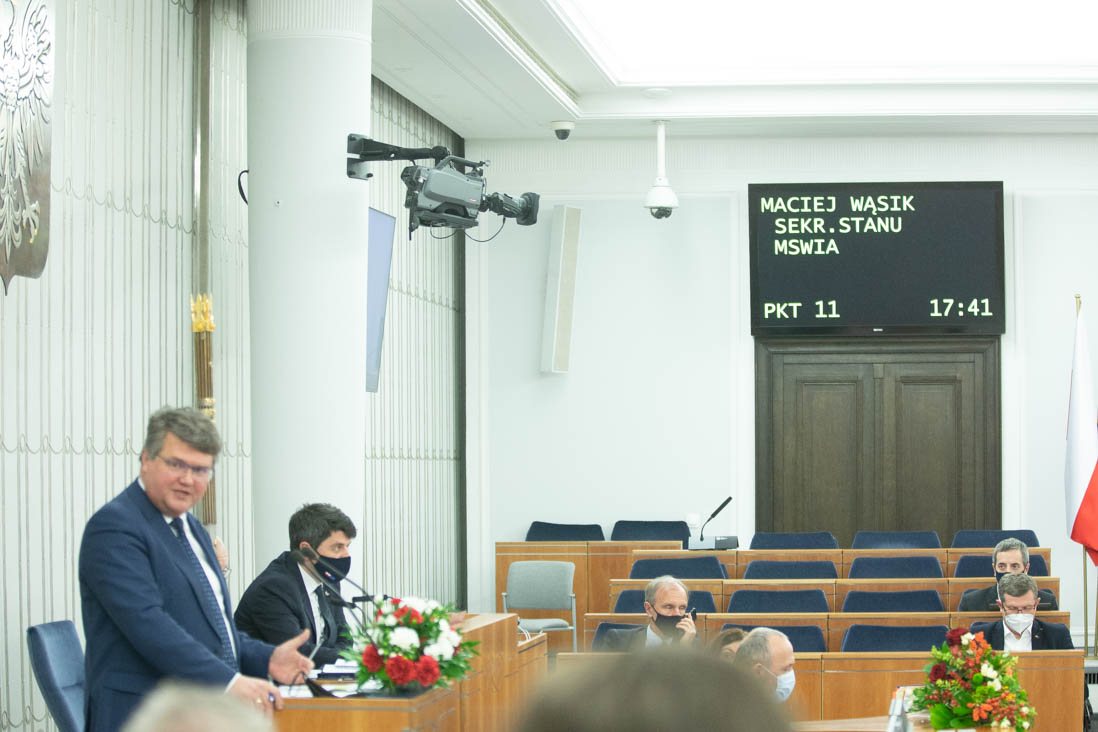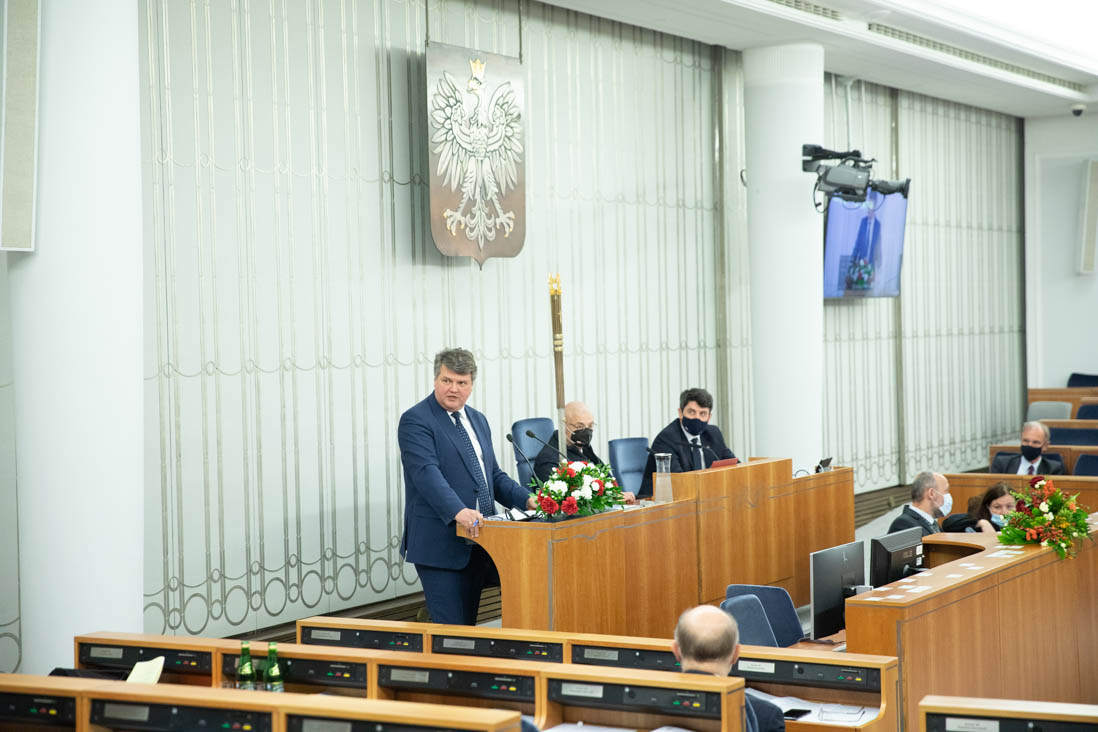The Senate has adopted, with amendments, the amendment to the Act on the Protection of the State Border
29.11.2021
– "We have decided that in this situation it is necessary to provide Border Guard officers, police and soldiers with instruments which will make their service even more effective," said Deputy Minister Maciej Wąsik during work on the Act in the Senate. On Friday (26 November), the senators adopted the amendment to the Act on the Protection of the State Border and Certain Other Acts, amending it. The bill will now go back to the Sejm for debate.

The draft amendment provides for the possibility to introduce restrictions only in a specific area of the border zone – in a strip of 15 km along the state border,
– said the Deputy Minister of the Interior and Administration.
The Secretary of State at the Ministry of the Interior and Administration spoke about the Police's efficiency in prosecuting smugglers.
Police officers say that restricting entry to a given territory improves the effectiveness in prosecuting smugglers. The restriction gives the possibility to carry out certain tasks in a much more effective way,
– he argued.
We, as the Government, have decided to submit to the Parliament this urgent project, the main element of which is to maintain the zone, which will also give better conditions to companies building a barrier on the state border,
– said deputy minister Maciej Wąsik.
Moreover, the Deputy Head of the Ministry of the Interior referred to the issue of compensation for entrepreneurs.
The Podlaskie voivode has assured me that by the end of this week, all those who have submitted applications will have received their compensation. The same is true of the Lubelskie voivode,
– he said.
Amendments to the Act on the Protection of the State Border
At the Polish-Belarusian section of the state border, migratory pressure is still visible. At the same time, incidents provoked by Belarusian services, including weapons use, are increasing. Therefore, in order to ensure the effectiveness of the actions of the Border Guard, it is necessary to add to the Act of 12 October 1990 on the Protection of the State Border the possibility of introducing, for a limited period, a residence ban in the border areas that are particularly vulnerable to this type of action.
The stay ban could be introduced in a specific area of the border zone based on an ordinance of the minister in charge of internal affairs (issued after consultation with the Commander in Chief of the Border Guard), which would specify the area and the duration of the ban. The Act provides for several exceptions to this ban for the listed categories of persons, primarily for residents of the area covered by the stay ban, persons performing gainful employment in this area, schoolchildren, and persons using border crossings. The locally competent commanding officer of the Border Guard post will also be able to allow other persons – journalists in particular – to stay in the prohibited area.
Given the possibility of imposing a ban on staying in certain areas near the border, as provided for in the Act, the Act also proposes the possibility for entities carrying out specific activities in the prohibited area to receive compensation for the duration of the ban.
The amendment also proposes a change to the Act of 12 October 1990 on the Border Guard, which extends the catalogue of direct coercive measures that Border Guard officers may use to include backpack throwers of incapacitating substances.
Furthermore, the Act provides for abolishing the age limit for candidates for service in the Border Guard, regulating the professional qualifications required for appointing Border Guard officers to an official position and abolishing the time limit for entrusting official duties in the case of an officer entrusted with official duties in connection with the necessity to replace another officer due to his/her absence from service.
The amendments shall enter into force on the day following their publication date, except for the provisions regulating the service of Border Guard officers, which shall enter into force on 1 January 2022.




